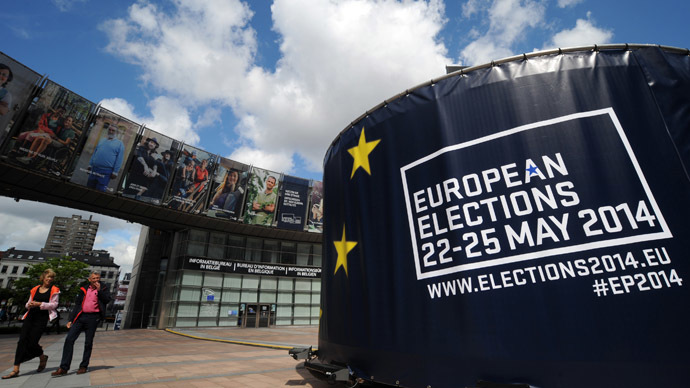
Michael Freeden is Emeritus Professor of Politics at Oxford University and professorial fellow at Mansfield College. He is also the founding editor of the Journal of Political Ideologies. His main interest is in the study of actual political thinking at various levels of articulation. Currently he is working on the specifically political features of political thinking and the distinctive methodologies that students of political thought might develop.
Why is the study of ideologies so important for understanding—and navigating through—the social world of which we are part? And why do we have to cast aside old approaches that regard ideologies as abstract, superimposed by manipulative and power-thirsty individuals and groups, and opposed to the pragmatism of political life? The simple answer is that we always live in a world of ideologies and every one of us has one, whether we are aware of it or not, and whether it is clearly expressed or just a vaguer set of beliefs and perceptions.
Although every one of us is unique as a human being, we also display patterns of behaviour we share in common, even if they differ on particulars. Those include patterns of thinking about our society and about other societies. Ideologies are one such pattern, concerning the political arrangements and processes of a political community. Sometimes these are on a grand scale: visions of a rich and harmonious future, or plans for control and domination. At other times they are more modest and specific: designing a fairer constitution, reducing poverty, protecting religious beliefs, or having concerns about immigration. Any society will host a number of ideologies, though some may be more prominent and some may be repressed by the groups that are in power. In democratic systems, certainly, ideologies will compete over the control of public policy. Because that competition is over ideas, beliefs and values it is above all conducted through words, oral or written—in Parliamentary debates, newspaper articles, blogs, pamphlets, manifestos, TV programmes and books. Consequently, whoever controls the public language of a society is in a very strong position to implement its policies.
If, say, questions about austerity or the regulation of banks are in the public eye, different ideologies will try to win the debate by appealing to the virtues of private enterprise, or to the need for public transparency and accountability, or to the greater redistribution of wealth. Every one of the social and political issues we confront in daily life comes with more than one solution attached. Sometime more than one of those solutions is sensible, or practical. But as a community deciding on what we want the public sphere to deliver for us, we need to choose among those solutions. We need to arrive at decisions; otherwise social paralysis would be the order of the day. That is where ideologies come in: they offer us maps that assist in making those decisions, and each ideology claims that it possesses the right map, insisting on the correctness of its interpretation of events and on the wholesomeness of its remedies, although it is highly unlikely that an ideal solution is available.
Ideologies are grouped around some central ideas through which we can then classify them as liberal, conservative, socialist, anarchist, fascist, feminist, or green, to list some of their major instances. Other ideologies are closely associated with influential religious belief systems. Each of them will have a different take on similar situations and problems. Say that you are walking through a town and come upon a street demonstration. It is peaceful, some people are talking through megaphones, and it is watched by police holding shields. If you are a conservative, your map will tell you that it’s a good idea they are containing the demonstration just in case it turns violent and, really, you’d prefer the demonstrators to go home and write a polite letter to their M.P., instead of wasting police time and money. If you are a liberal, your map tells you that you should be impressed: people are practising their civil right to disagree in a civilized manner, because that is one of the basic freedoms the liberal map suggests all decent societies should protect. Some disruption is a reasonable price an open society should pay for its liberties. If you are an anarchist, your map might suggest that direct action is the only way to move, possibly remove, the stubborn and remote governing classes that oppress the people and you may wish that there was a little more clout in the behaviour and body-language of the demonstrators. I have discussed this and other issues in my Ideology: A Very Short Introduction (2003).
My research looks at ideologies as being produced at different levels, from that of government, through the press, electronic media and interest groups, right down to the normal and never-ending manifestations of the ideas and values we hold when we consider how the various communities to which we belong—national or local, formal and informal—should be run. Some of us prefer to keep things as they are; some to change things, slowly or dramatically. Different ideologies reflect those diverse attitudes to change. Some of us think that we are not political at all but that is hardly ever the case. The ways we engage with our friends, the preferences and hostilities we harbour, the views we have about teachers, parents, education, or people from other ethnic groups—however loosely held—can easily be ‘excavated’ by the student of ideologies, who can then identify, classify and maybe even anticipate the ideas and behaviour people display in their roles as members of a society.
Above all, in my own work on ideologies, I have sought to look at the actual forms of thinking about politics and human interaction in which we all engage. For me, that offers one of the key perspectives on understanding societies, and it is a way of thinking about politics that shifts it away from the great theories and abstractions of political philosophers, who often cannot speak with reference to everyday life. But obviously we all think, and as part of that thinking we also all think about political matters in the broadest possible sense: not only about political parties or elections, or people in suits, but about us, working our way sometimes clearly, often messily, through the twists and turns of communication with others. That thinking always has an ideological component, and—consciously or unconsciously—it directs us to act in a particular way when we seek to co-operate, or to disagree, in our social activities. The study of ideologies as serious forms of political thinking is a growth area within the discipline of politics as more and more research focuses on the ‘small print’ of political thinking and on the comparative contexts in which it takes place.




1 Comment